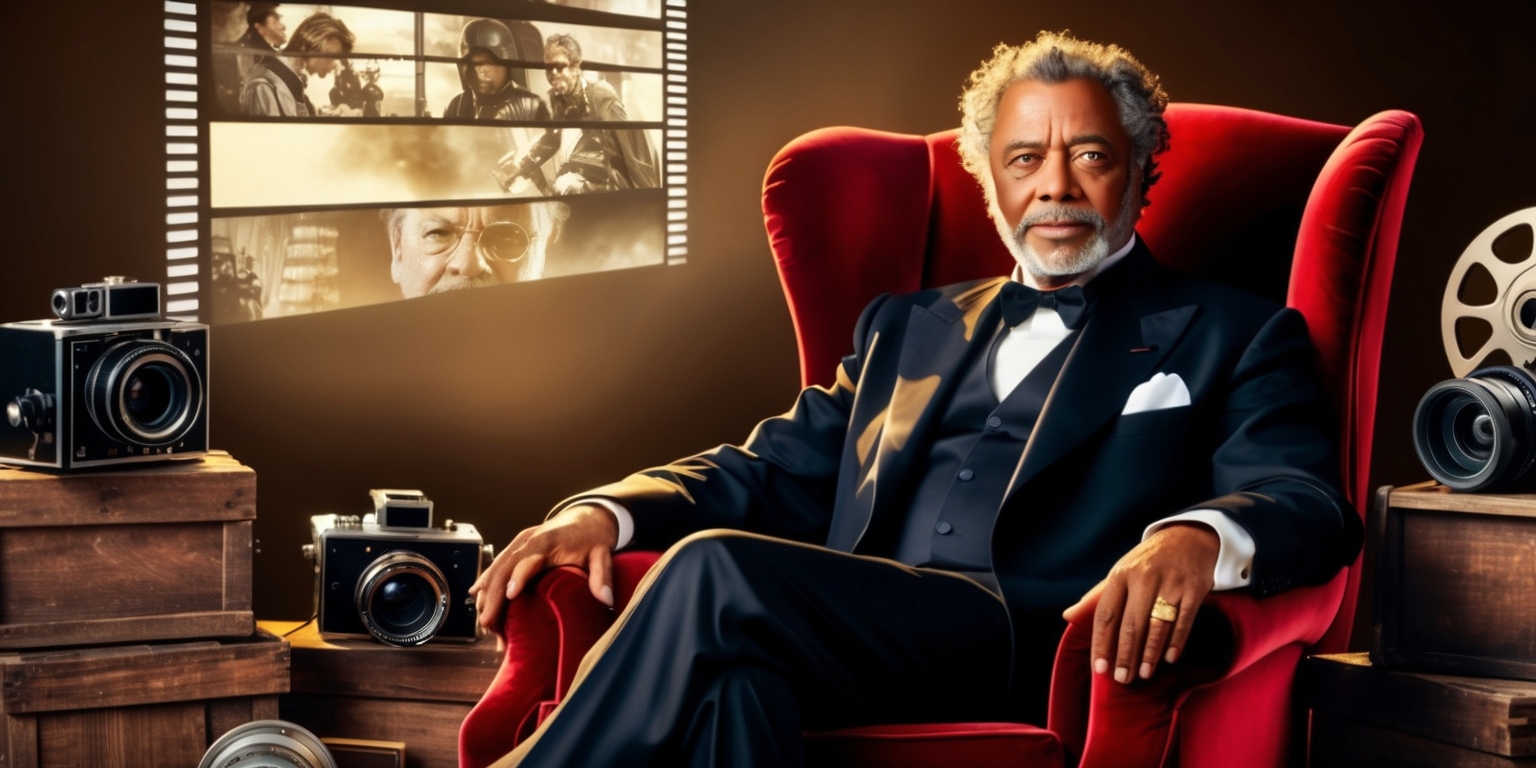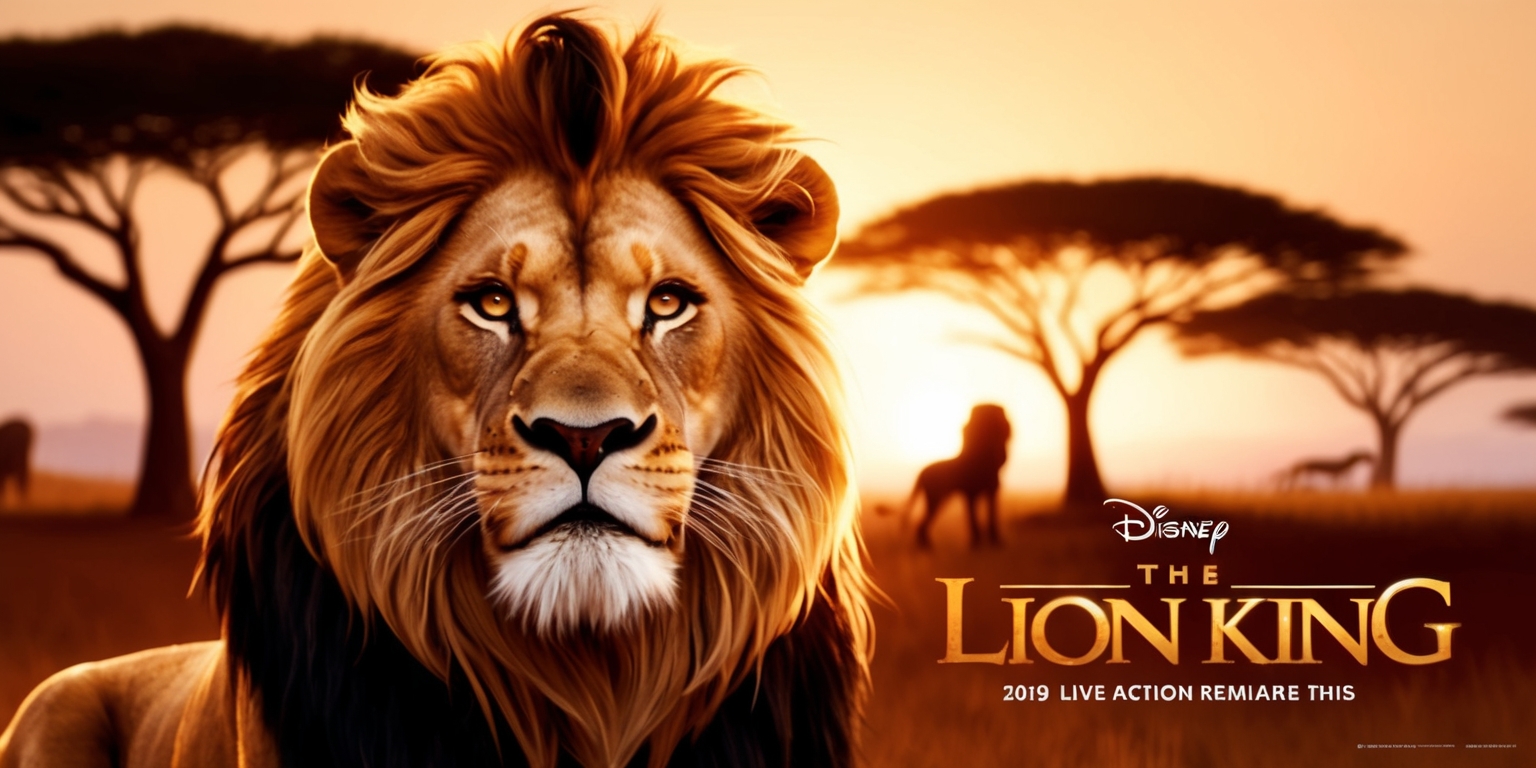The Resonant Legacy of James Earl Jones: A Journey Through Voice and Emotion in Cinema
Dec-06-2024

The world of cinema has been indelibly marked by the profound and iconic voice of James Earl Jones, whose contributions have spanned decades and numerous classics. His remarkable gift for storytelling through voice alone has enchanted audiences around the globe. Amidst this backdrop, the task of reviving such a monumental figure falls into the hands of skilled directors, who often find themselves in awe of the legends they work with. One such instance occurred when Jon Favreau—renowned for his work in the Marvel Cinematic Universe—took on the challenge of directing Jones for the 2019 remake of Disney's beloved film, *The Lion King*. This experience revealed not only the challenges of directing a titan like Jones but also reflections on his extraordinary legacy.
Understanding the Weight of the Role
As Favreau approached the task of resurrecting Mufasa through the voice of James Earl Jones, he understood the significance of the role. Mufasa, the wise father figure in *The Lion King*, carries with him a responsibility that resonates deeply with audiences. The multi-layered nature of this character, combined with Jones’ history, made for a daunting task.
The Challenge of Directing a Legend
In interviews, Jon Favreau candidly shared his thoughts about the hurdles he faced. Directing such an iconic figure left him feeling both excited and apprehensive. The moment he heard Jones' voice brought an overwhelming sense of reverence. The sheer power and history behind it were not things one simply directed; they were things that shaped the very fabric of cinematic storytelling.
Frozen in Awe
During one particularly telling moment, Jones inquired if Favreau had any specific directions for him. This inquiry left the director momentarily speechless. Favreau humorously recounted, “I didn’t really know what to say!” The reality was stark: the director felt wholly underqualified to instruct someone whose work had so extensively influenced how Mufasa was perceived both on and off-screen.
Preserving the Legacy

Favreau struggled with the knowledge that his concept of Mufasa was largely inspired by Jones' own interpretations over the years. Here lay the paradox—attempting to guide a performer who had set the gold standard for the role he was tasked to enhance. Favreau’s role evolved into that of a supporter, facilitating an environment where Jones could continue to shine.
Evoking Nostalgia with Each Line
A particularly impactful feature of Jones’ voice is its ability to evoke emotion. Favreau realized that his job was not to redefine Mufasa but to ensure that the audience felt the same depth of emotion that Jones had originally brought to the character. In this way, Favreau aimed to capture the essence of nostalgia, allowing long-time fans of *The Lion King* to connect once again with a character that shaped their childhoods.
James Earl Jones' Unforgettable Filmography
As Jones departed from this world, his vast legacy remains vibrant. His presence graced films like *Field of Dreams* and *Coming to America*, showcasing his versatility beyond the voice roles. Each performance carved his identity deeper into the chronicles of cinematic history.
Defining Moments in Film History
Among his most memorable performances was his portrayal of Darth Vader, a role that Jones initially hesitated to associate himself with fully. Originally requesting to remain uncredited, he later embraced the role after realizing how intrinsically it had become tied to his identity as an actor. Jones later acknowledged the substantial impact his voice had, highlighting the complex nature of recognition in an industry often dominated by visual performance.
Celebrating Mufasa's Enduring Impact
Who can forget the emotional turmoil sparked by Mufasa's tragic fate in the 1994 animated classic? It remains—without a doubt—one of the most wrenching moments in animation history. Jones’ powerful delivery resonated deeply with viewers, creating ripples of sadness that highlighted the profound connection audiences formed with the character. This legacy transcends generations and remains a powerful influence in the global arena of family entertainment.
Reviving a Classic for New Audiences
Favreau’s mission to reintroduce *The Lion King* to a new generation featured not just a loyal nod to Jones' legacy but an acknowledgment of how critical it is to honor the past while moving forward. The seamless integration of advanced animation with Jones’ voice aimed to bridge old and new, allowing both fans and newcomers to enjoy the enchantment of Pride Rock.
The Balance of Innovation and Tradition
In undertaking this ambitious project, Favreau was keenly aware of the precarious balance he had to maintain. Innovating a classic is risky—there's the potential to alienate die-hard fans while trying to appeal to fresh audiences. This dynamic came front and center as Favreau worked diligently to capture the essence of *The Lion King* while also augmenting its visual appeal and storytelling framework.
The Unmatched Emotional Range of James Earl Jones
Across all roles, Jones showcased an extraordinary emotional range, one that offered a window into the nuances of humanity. Through Mufasa and Darth Vader, he drew attention to themes of leadership, love, loss, and redemption—elements that resonate across a multitude of stories and genres.
Impact Beyond the Screen
James Earl Jones was more than merely an actor; he was a cultural icon. His influence stretches beyond his roles and has left an indelible mark on arts, theater, and the film industry. Generations of young actors can look to his work as a benchmark of excellence, understanding that profound storytelling can evoke powerful emotions, even without extensive facial expressions.
The Legacy Continues
As we reflect upon both Jon Favreau's endeavor to bring Mufasa back to life and the monumental legacy of James Earl Jones, we are prompted to acknowledge the influence of expression in storytelling. Jones leaves behind a world enriched with remarkable characters whose essence will continue to inspire engagement with film and theater for years to come. As new projects emerge, the lessons learned from both Favreau’s unique challenges and Jones’ artistic journey will guide future artists in celebrating this art form.
Looking Back on a Storied Career
James Earl Jones’ career was not just about the roles he played—it was a celebration of the incredible world of storytelling. His voice has become synonymous with strength and authority, leading to the formation of legions of fans who appreciate the richness he brought to every performance. As we remember his contributions, we are left with a treasure trove of cinematic moments ensuring his legacy is cherished for generations to come.







